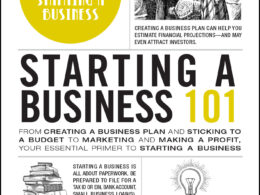This is an excerpt from “Tranquility by Tuesday: 9 Ways to Calm the Chaos and Make Time for What Matters” by Laura Vanderkam. Copyright 2022 by Portfolio and reprinted with permission.
The productivity trap
Turning off notifications and making a list is simple enough. The bigger problem for many Tranquility by Tuesday participants was that this rule to batch the little things—both at work and at home—interfered with some ingrained notions of what productivity looks like:
- “I like the idea of batching household chores. But I also feel like I have a ‘I have too much on my plate’ mindset right now that makes me feel irresponsible if I’m not constantly taking care of something.”
- “Life right now is more about getting things done when you can because you can’t rely on any given time slot being protected.”
We like to get stuff done. This is true of humanity in general. As for the subset of humanity that reads time-management and productivity books? We really like to cross stuff off the list. The physical act of crossing something off provides an incredible sense of satisfaction. Indeed, I have been known to write things on my to-do list after doing them just so I can cross them off. We walk around with the maxims in our heads to not put off until tomorrow what can be done today and to make hay while the sun shines. A number of Tranquility by Tuesday participants cited the “two-minute rule,” which comes up in a lot of productivity literature. The idea is that if a task will take two minutes (or less time), you should just do it when you learn of it, so you won’t have to deal with it again.
On some level, the two-minute rule makes sense. It might take more than two minutes to pull that task up a second time and get in the mental space to address it. But there are complications with the two-minute rule that ultimately undermine its benefits.
Any two-minute task can easily turn into one of these three monsters:
- A Task Hydra. Are you sure that’s only a simple two-minute task? Few people excel at time estimation. That two-minute task can easily turn into a five- or ten-minute task, or a multipart task that involves waiting for someone to call you back, or finding that you need to track down a different form, or print something when you don’t have a printer nearby. One person referred to this phenomenon as the “Task Hydra.” Cut off one head and the task grows another. Soon enough you’ve really cut into the time when you intended to do something else.
- A Rabbit Hole. It is hard to resume work after a distraction. Yes, it takes only a minute to email your colleague that form she asked you But after you send that email you find yourself, shockingly enough, in your inbox. Your inbox turns out to have other shiny new unread messages. You start opening and reading them and … two minutes turns into twenty. And that’s if you stay in your inbox. Some folks have elaborate rituals that precede the resumption of work. Any break results in checking headlines, the stock market, sports scores, two social-media apps, and the weather. Focus becomes the exception, rather than the rule.
- A Procrastination Siren. The biggest problem is that the two-minute rule (or even a five- or ten-minute rule) can be an easy way to procrastinate doing the more difficult stuff, a phenomenon the most self-aware participants quickly figured out:
- “When I’m at my computer, I often take care of personal things—ordering presents, looking up a bike route, etc.— because it’s easier and more fun than work.”
- “I want to feel productive and small tasks make it easy to feel like I’ve completed a lot of things, even if they have distracted me from a larger, more important task.”
- “I sometimes have a hard time motivating myself for doing anything productive at all, so these small tasks come in handy.”
- “When I feel frustrated it’s nice to have something to ‘mark off.’ Sometimes there value in that, but often I need to sit and really dig in to the hard things.”
The “Task Hydra” and the “Rabbit Hole” phenomena can eat up time, but ultimately this last monster is the most dangerous. Sometimes you just need to sit and stare at a screen, or a notebook, or the piano keys or a canvas if you’re pondering a composition. You need to sit with the discomfort as your brain works to figure out what you need to do. When you give yourself an easy win, you deprive yourself of the bigger win that comes from breaking through. And while yes, you do need breaks, you’re probably better off disconnecting completely than answering emails.
“If my brain feels stumped, I’d like to stand up and stretch or go for a walk—something that still allows a part of my brain to work on the problem,” one person wrote. As you go for a walk, your brain slowly knits disparate strands together. You come back refreshed and with an answer. In the grand scheme of things, this feels better than crossing six meaningless items off a to-do list.
Time Management: The One Habit All Successful Entrepreneurs Learn to Master
The three-hour rule
If the “two-minute rule” isn’t all it’s cracked up to be, then what? A few years ago, one of my wise blog readers shared what she called “the three-hour rule,” which gave her a way to get both the big and little stuff done.
Each day, she would spend a few minutes looking at email and planning out her workflow, and then, from 9 a.m. to noon she would go silent. She would turn off all notifications, shut her inbox, turn off her phone, and focus completely on her big problem of the day. She would emerge to the world at lunchtime and spend the rest of the day on calls, meetings, administrative work, and so forth. By following the “three-hour rule,” she still completed all her two-minute tasks. But she also made progress on her major projects.
I know that all work is not the same. Plenty of careers, from medicine to construction to retail, don’t fit this mold. Even those in knowledge-work occupations may already be coming up with reasons why the three-hour rule would never work. And maybe it wouldn’t. But if we allowed for calls from the school nurse, daycare, or your spouse, would that change your mind? What if you had an honest conversation with your manager or your direct reports about preserving time for focus—for everyone? Have you ever been unreachable during a three-hour flight? Or even a ninety-minute one? Did the earth stop spinning?
To change your daily life, change your narrative
Sometimes, we become addicted to the notion of being busy, and that we constantly have to do one thing or another. I have no time for thinking about my next career move because I have to respond to all these meeting requests! I can’t meet up with a friend or write that book proposal because I have to buy light bulbs and mail that package and . . . Consciously pushing these tasks into a smaller window means there might be time for other things. This sounds great, but acknowledging that there is time for other things might mean changing a narrative. And changing a narrative is hard. Changing a narrative can require changing an identity. I am no longer the put-upon martyr, doing everything for everyone else. I’m a person who could be having fun, or could be making progress on my professional goals, but because of my choices, is not.
Ultimately, there are no prizes given for enjoying your life the least.
“Tranquility by Tuesday” can be purchased via StartupNation through the link below.






